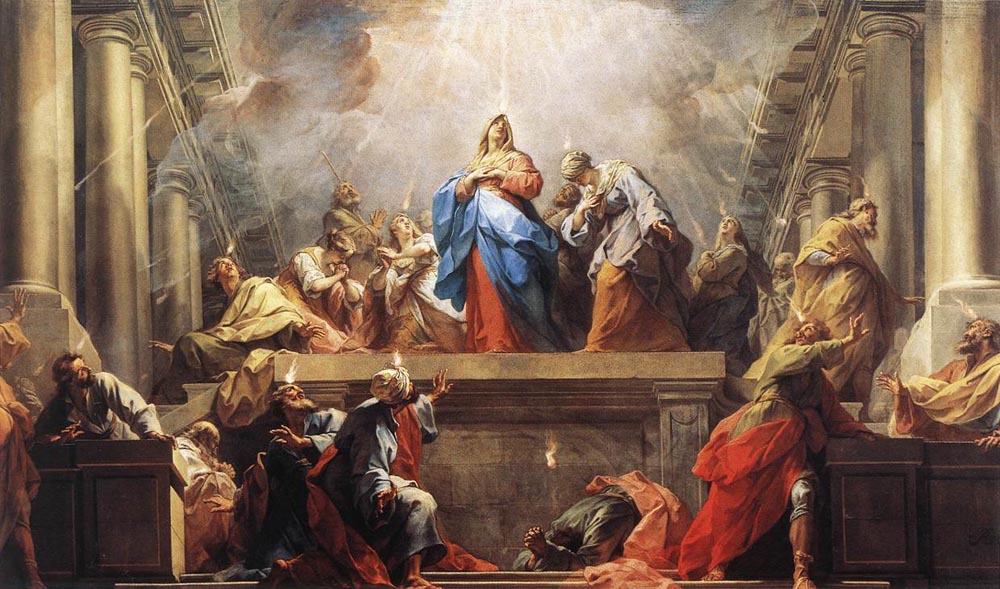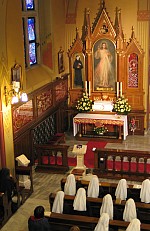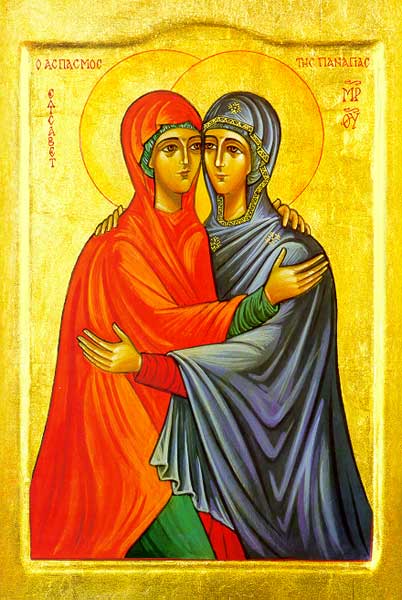Veni Creator 7th stanza
 http://jamiesthots.com/2012/09/13/peace-from-the-doxology/
http://jamiesthots.com/2012/09/13/peace-from-the-doxology/Now to the Father and the Son,Praise to thy eternal merit,
Who rose from death, be glory given,
with Thou, O Holy Comforter,
henceforth by all in earth and heaven.
Amen.
Father, Son, and Holy Spirit.
Immortal honor, endless fame,Attend th’almighty Father’s Name:John Dryden
The Savior Son be glorified,
Who for lost man’s redemption died:
And equal adoration be,
Eternal Paraclete, to Thee.
The dictionary defines doxology as “an expression of praise to God, especially a short hymn sung as part of a Christian worship service.” The word doxology comes from the Greek doxa, (“glory, splendor, grandeur”) and logos, (“word” or “speaking”). Most doxologies are short hymns of praise to God in various Christian worship services, often added to the end of canticles, psalms, and hymns.
The Gloria Patri, so named for its first two words in Latin, is commonly used as a doxology by Roman Catholics, Old Catholics, Independent Catholics, Orthodox and many Protestants including Anglicans, Presbyterians, Lutherans, Methodists, and Reformed Baptists. It is called the "Lesser Doxology," thus distinguished from the "Great Doxology," Gloria in Excelsis Deo, and is often called simply "the Doxology." The Latin text of the Lesser Doxology is “Gloria Patri, et Filio, et Spiritui Sancto. Sicut erat in principio, et nunc, et semper, et in sæcula sæculorum. Amen.” Literally translated, it means “Glory be to the Father, and to the Son, and to the Holy Ghost. As it was in the beginning, is now and ever shall be, world without end. Amen.” As well as praising God, this doxology is also a short declaration of faith in the co-equality of the three Persons of the Holy Trinity.
Read more:http://www.gotquestions.org/doxology.html#ixzz39l1oZoqL
There is an alternate version which the Syriac Catholic Church and the Syriac Orthodox Church use in their Liturgies
Gloria Patri, also known as the Glory Be to the Father or, colloquially, the Glory Be, is a doxology, a short hymn of praise to God in various Christian liturgies. It is also referred to as the Minor Doxology (Doxologia Minor)or Lesser Doxology, to distinguish it from the Greater Doxology, the Gloria in Excelsis Deo.
The earliest Christian doxologies are addressed to God the Father alone, or to Him "through" (διὰ) the Son,[1] or to the Father and the Holy Spirit with( (μετά) the Son,[2] or to the Son with (σύν) the Father and the Holy Spirit.[3]
The Trinitarian doxology addressed in parallel fashion to all three persons of the Trinity, joined by and (καί), as in the form of baptism, Matthew 28:19, became universal in Nicaean Christianity, which became dominant with theEdict of Thessalonica of 380.[4]
- Glory be to the Father and to the Son and to the Holy Spirit,
- And upon us, weak and sinful ones, let mercy and compassion be showered in both worlds, forever and ever. Amen.
- http://en.wikipedia.org/wiki/Gloria_Patri
 http://www.christusrex.org/www1/pater/JPN-english.html
http://www.christusrex.org/www1/pater/JPN-english.html














 O Jesus, You inspired Saint Faustina with profound veneration for Your boundless Mercy. Grant me through her intercession, if it be Your holy will, the grace ...for which I fervently pray. My sins render me unworthy of Your Mercy, but be mindful of Saint Faustina's spirit of sacrifice and self-denial, and reward her virtue by granting the petition which, with childlike confidence, I present to You through her intercession.
O Jesus, You inspired Saint Faustina with profound veneration for Your boundless Mercy. Grant me through her intercession, if it be Your holy will, the grace ...for which I fervently pray. My sins render me unworthy of Your Mercy, but be mindful of Saint Faustina's spirit of sacrifice and self-denial, and reward her virtue by granting the petition which, with childlike confidence, I present to You through her intercession.

